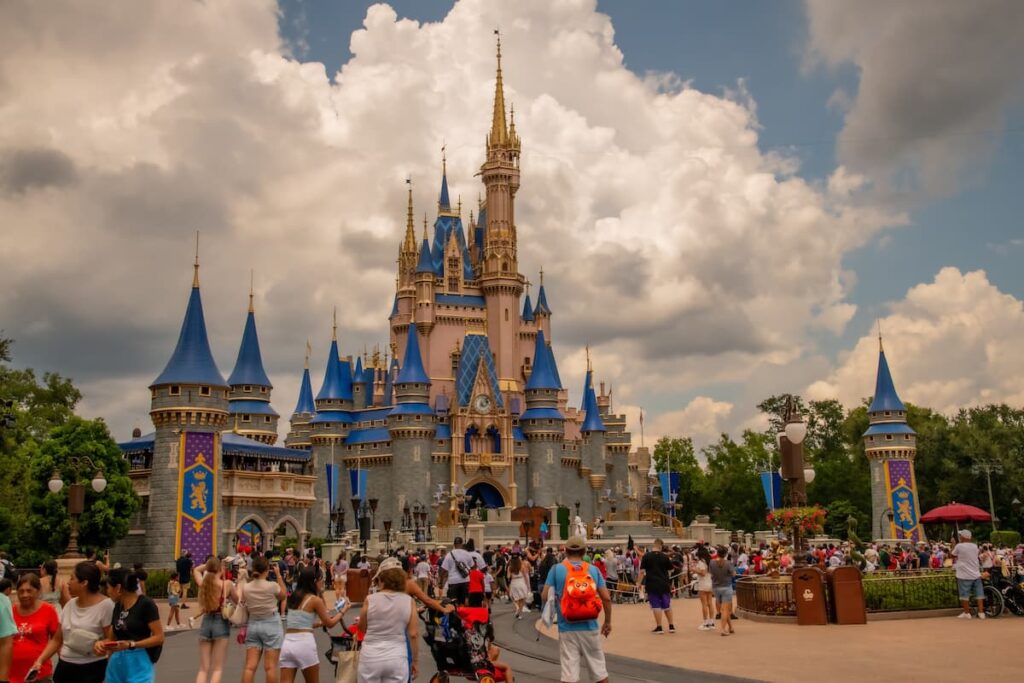Landmark Resort Marks Company’s Entry Into the Middle East
The Walt Disney Company has unveiled plans to build a new theme park resort in Abu Dhabi, marking its first major expansion in over a decade and its first-ever resort in the Middle East. The announcement, made on Wednesday, positions Disney to tap into a rapidly growing tourism and entertainment market while expanding its global footprint.
The new project, Disneyland Abu Dhabi, will become Disney’s seventh global resort destination and will be located on Yas Island, already home to popular attractions such as SeaWorld, Warner Bros. World, and Yas Waterworld. Developed in partnership with local company Miral, the resort is expected to open in the early 2030s and will include at least one theme park and several hotels. Disney Imagineers will lead the creative design while Miral oversees development and operations.
“This is not just about copying what exists somewhere else,” said Josh D’Amaro, chairman of Disney Experiences. “We want each park to reflect its location—its culture, its cuisine, and its people. And in Abu Dhabi, we aim to do exactly that.”
A Strategic Move for Global Expansion
The decision to enter the Middle East market comes at a time when Disney is looking to balance fluctuations in international and domestic park attendance. While U.S. theme parks experienced a slight dip last year, they saw a rebound in early 2025. Meanwhile, attendance at Disney parks in Shanghai and Hong Kong declined, affected by trade tensions and economic instability in China.
Abu Dhabi, by contrast, offers strategic advantages. Its geographic location places it within a four-hour flight radius of a third of the world’s population, including over a billion people in India. Yas Island is just 20 minutes from downtown Abu Dhabi and 50 minutes from Dubai, making it easily accessible for both regional and international visitors.
According to D’Amaro, up to 500 million people in the surrounding region have the means to visit a Disney park, and the area’s forward-thinking infrastructure made it an ideal location for the company’s next expansion.
“There was no question that for our seventh resort, this is where it was going to be,” he told CNN.
A New Era of Theme Park Innovation
Disney plans to make the Abu Dhabi park its most technologically advanced to date. The castle, typically the centerpiece of each Disneyland resort, will be a futuristic, spiraling crystal structure that reflects the city’s modern aesthetic. It will also be the first Disney park with direct waterfront access, enhancing the immersive experience for guests.
The company is expected to integrate cutting-edge tools like Unreal Engine—a software used in Disney films and games—to create real-time interactive attractions. D’Amaro emphasized that this digital integration will allow guests to engage with Disney stories in completely new ways.
“We’re very bullish on this space,” D’Amaro said. “This park, given how tech-forward it’s going to be, offers a huge opportunity to reimagine what a theme park experience can be.”
Challenges and Competition in the Region
While Abu Dhabi offers significant potential, the Middle East has seen mixed results when it comes to theme park developments. In the past, several Dubai-based parks faced financial losses for years. Industry analyst Dennis Speigel, founder of International Theme Park Services, noted that Disney’s choice of Yas Island is a smart one given its established infrastructure.
“I was surprised to hear the announcement at this time, but not surprised Disney chose Abu Dhabi,” said Speigel. “The critical mass of leisure development in the area provides a strong foundation for Disney’s entry.”
The announcement comes amid growing competition in the theme park sector. Universal recently confirmed plans for its own seventh resort in the United Kingdom and is preparing to open Epic Universe in Orlando, Florida—its first major park addition in nearly three decades. Still, Disney appears confident.
“When new parks open in Central Florida, we typically benefit from increased tourism overall,” said D’Amaro in a CNBC interview. “You’re not going to visit the area and skip Star Wars.”
Strong Earnings Fuel Confidence
Disney’s expansion announcement followed the release of its second-quarter earnings report, which showed solid growth. The company posted $23.6 billion in revenue, a 7% year-over-year increase, and $4.4 billion in operating income, up 15%. Disney+ added 1.4 million subscribers in the quarter, reaching 126 million globally, while Hulu grew by 1.3 million users.
Though the company acknowledged ongoing economic uncertainties, it projected continued subscriber growth and double-digit revenue gains in both its entertainment and sports divisions in the next quarter.
CEO Bob Iger emphasized the enduring value of Disney parks: “Even with consumer confidence somewhat down, people still see a Disney theme park experience as really special. They’re incredibly resilient.”


